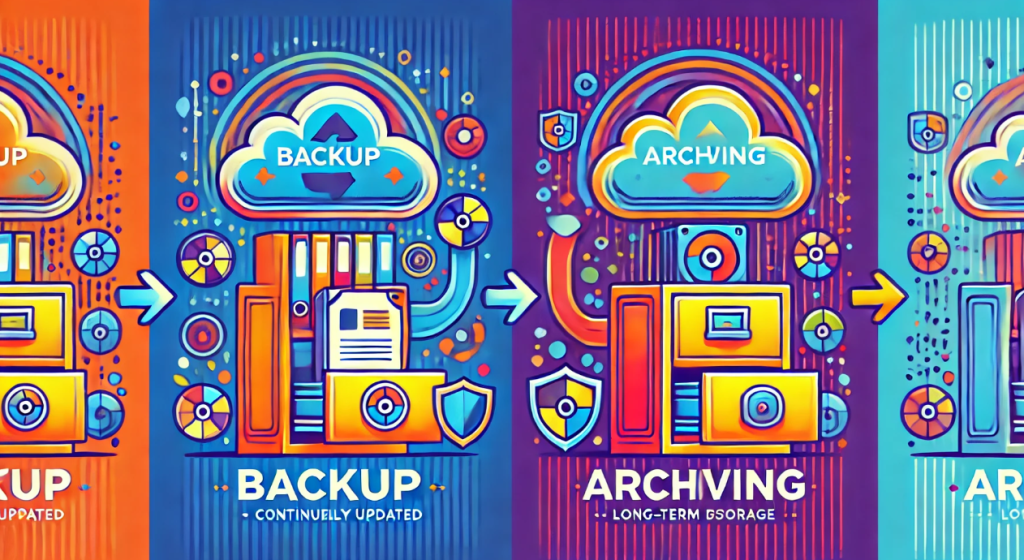Backup vs. Archiving: What You Really Need!

Picture this: You’re standing in the middle of a messy room, surrounded by piles of important documents, photos, and random files you can’t seem to throw away. Now imagine trying to figure out whether you should back them up or archive them. Yes, they both sound like they do the same thing, but trust us, there’s a world of difference! If you’ve ever wondered what sets backup and archiving apart, or which one is the best for your personal or business needs, this blog’s for you.
Backup: The Digital Safety Net
Backup is like a life jacket for your data. It’s the process of copying your important files and data to another storage medium (typically the cloud or external drives) so that if disaster strikes—like accidental deletion, hardware failure, or a virus—you can restore it quickly. With cloud data backup solutions like Polarbackup, you can have peace of mind knowing your files are protected, no matter what happens.
Why backup?
- ✅ Quick Recovery: Backup ensures that if something goes wrong, your data is safe and easy to retrieve.
- ✅ Continuous Updates: New files are automatically backed up, so you’re always up-to-date.
- ✅ Ideal for Business: Protect critical business data and ensure minimal downtime with reliable backup.
Top Questions About Backup
1️⃣ How often should I back up my data?
Answer: Regularly—ideally, you should schedule backups weekly or even daily, depending on how often your data changes.
2️⃣ Will Polarbackup keep my data secure?
Answer: Yes! Polarbackup uses military-grade 256-bit AES encryption to keep your files safe.
Archiving: The Long-Term Data Keeper
Archiving, on the other hand, is more like storing your memorabilia in a neat, organized box in the attic. Archiving is about keeping old files that you don’t need daily access to but still want to preserve for the future. It’s not about recovery, it’s about storage—saving important data for the long term without taking up valuable space.
Why archive?
- ✅ Storage Efficiency: Archiving saves storage space for active files by offloading less-used ones.
- ✅ Compliance: Businesses often archive records for legal or regulatory reasons.
- ✅ Cost-Effective: Archiving is typically cheaper than continuous backup since it doesn’t require constant updates.
Top Questions About Archiving
1️⃣ Is archiving for me if I don’t need to access files regularly?
Answer: Yes, it’s perfect for long-term storage of infrequently accessed data.
2️⃣ Can I archive business records securely?
Answer: Absolutely! Polarbackup offers secure, GDPR-compliant archiving solutions to meet all your business needs.
Which One Do You Really Need?
The million-dollar question: Backup or archiving—what’s right for you?
- Personal Users: If you’re looking to protect personal files like photos, documents, and videos, cloud data backup is your best bet. You never know when your phone or computer might crash, and backup is your fail-safe solution.
- Business Users: For businesses, you’ll need both backup and archiving. Backup protects your active data and ensures business continuity, while archiving helps with compliance and long-term storage of historical records.
Don’t Choose Wrong, Choose Both!
Ultimately, backup and archiving serve different purposes but can work together for optimal data management. Whether you’re securing your personal memories or managing a business’s data, services like Polarbackup make it easy to keep both your present and future data safe and organized.
So, what are you waiting for? Secure your data today with the power of cloud data backup and archiving solutions that adapt to your needs.
